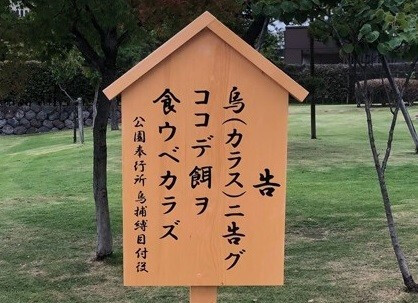Still on the からいうと Grammar Point, I’ve found a couple of videos on the matter, the first one I can highly recommend, the second one is quite short but gives some decent example sentences. Because the second one is so short, and some people might not yet have reached a level where they are comfortable with purely Japanese content, I quickly wrote down the transcript and provided some quick and dirty translations. I might clean it up a bit and double check I didn’t make any mistakes later on (and if I feel like it I might also transcribe the first video, but that would be quite a large undertaking, so no promises!)


Japanese Transcript - Also check here if you want furigana
皆さん、こんにちは。今日はN2の文法を「~からいうと・~からいって・~からいえば」について説明をしていきたいと思います。 「~からいうと・~からいって・~からいえば」は前に名詞が来ます。 意味は「お考えると」・「~から判断すると」・「その点についていうと」という意味ですね。例文を見ていきましょう。 中国は人口からいうと世界一です。しかし、日本と比べて人口密度はずっと低いです。 人口の点からいうと、人口から判断するとという意味ですね。次の例文です。 でざいんからいえば、これが気に入ったが、値段がとても高い。 でざいんから判断するとや、でざいんの点からいうとという意味ですね。次の例文です。 彼女の能力からいって、優勝するのではないかと期待されている。 彼女の能力から判断するとという意味ですね。最後の例文です。 彼の日本語力から言えば訂正するところはあるが、内容はよい。 彼の日本語力から判断するとという意味ですね。 今日は「からいうと・からいって・からいえば」の説明をしていきました。 皆さんしっかり復習しておいてください。
English Translation
Hello, everyone! Today I’d like to explain the N2 Grammar Points 「~ からいうと・~ からいって・~ からいえば」. With 「からいうと・からいって・からいえば」, the noun comes before the Grammar Point. It has a meaning like「Thinking from the perspective of」,「Judging from the perspective of」, 「Regarding that point」. Let’s look at some example sentences :
China is the most populous country in the world in terms of population. However, it’s population density is much lower than that of Japan. In terms of population, it means “judging from the population”. Next example sentence.
In terms of design, I like this, but the price is very high. Judging from the design, it means from the point of view of the design. Next example.
Judging from her ability, she is expected to win the championship. Judging from her ability, she is expected to win. The final example sentence.
Speaking of his Japanese ability, there are some corrections to be made, but the content is good. It means “judging from his Japanese abilities”.
Today we explained 「からいうと・からいって・からいえば」. Everyone, please review it carefully.
Sentence-by-sentence translation
皆さん、こんにちは。今日はN2の文法を「~ からいうと・~ からいって・~ からいえば」について説明をしていきたいと思います。
Hello, everyone! Today I’d like to explain the N2 Grammar Points 「~ からいうと・~ からいって・~ からいえば」.
「からいうと・からいって・からいえば」は前に名詞が来ます。
With 「からいうと・からいって・からいえば」, the noun comes before the Grammar Point.
意味は「お考えると」・「から判断すると」・「その点についていうと」という意味ですね。例文を見ていきましょう。
It has a meaning like「Thinking from the perspective of」,「Judging from the perspective of」, 「Regarding that point」. Let’s look at some example sentences.
中国は人口からいうと世界一です。しかし、日本と比べて人口密度はずっと低いです。
China is the most populous country in the world in terms of population. However, it’s population density is much lower than that of Japan.
人口の点からいうと、人口から判断するとという意味ですね。次の例文です。
In terms of population, it means “judging from the population”. Next example sentence.
デザインからいえば、これが気に入ったが、値段がとても高い。
In terms of design, I like this, but the price is very high
デザインから判断するとや、デザインの点からいうとという意味ですね。次の例文です。
Judging from the design, it means from the point of view of the design. Next example.
彼女の能力からいって、優勝するのではないかと期待されている。
Judging from her ability, she is expected to win the championship.
彼女の能力から判断するとという意味ですね。最後の例文です。
Judging from her ability, she is expected to win. The final example sentence.
彼の日本語力から言えば訂正するところはあるが、内容はよい。
Speaking of his Japanese ability, there are some corrections to be made, but the content is good.
彼の日本語力から判断するとという意味ですね。
It means “judging from his Japanese abilities”.
今日は「からいうと・からいって・からいえば」の説明をしていきました。
Today we explained 「からいうと・からいって・からいえば」.
皆さんしっかり復習しておいてください。
Everyone, please review it carefully.
 (I have an ongoing list of “confusing grammar” for myself, and this is one.)
(I have an ongoing list of “confusing grammar” for myself, and this is one.)







